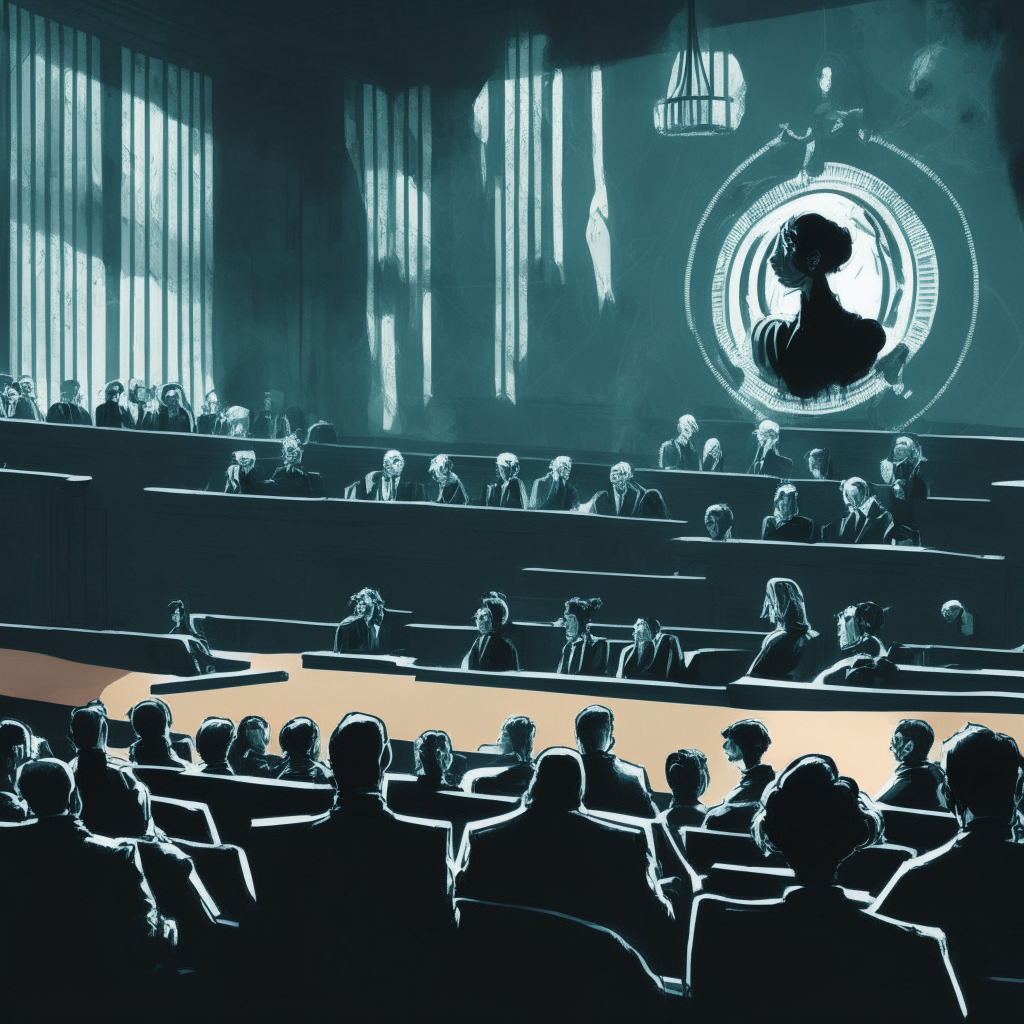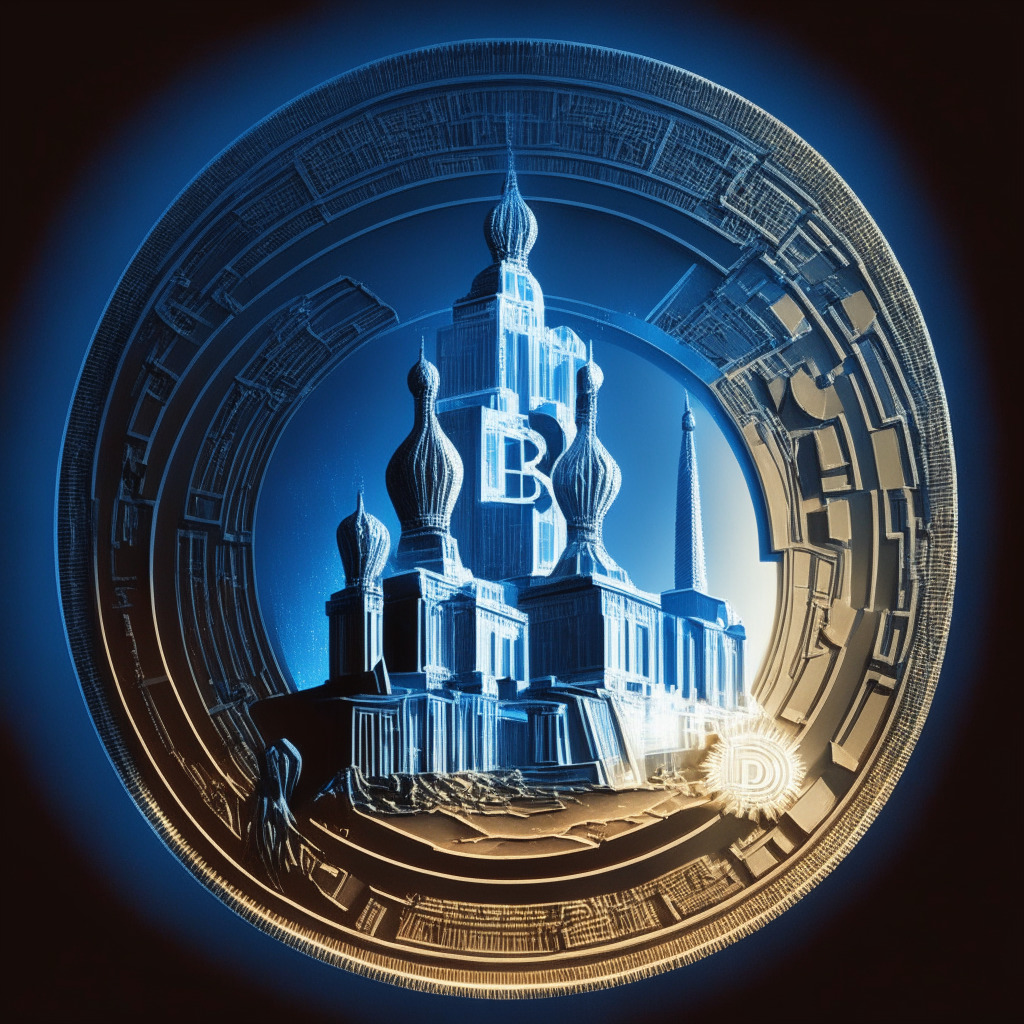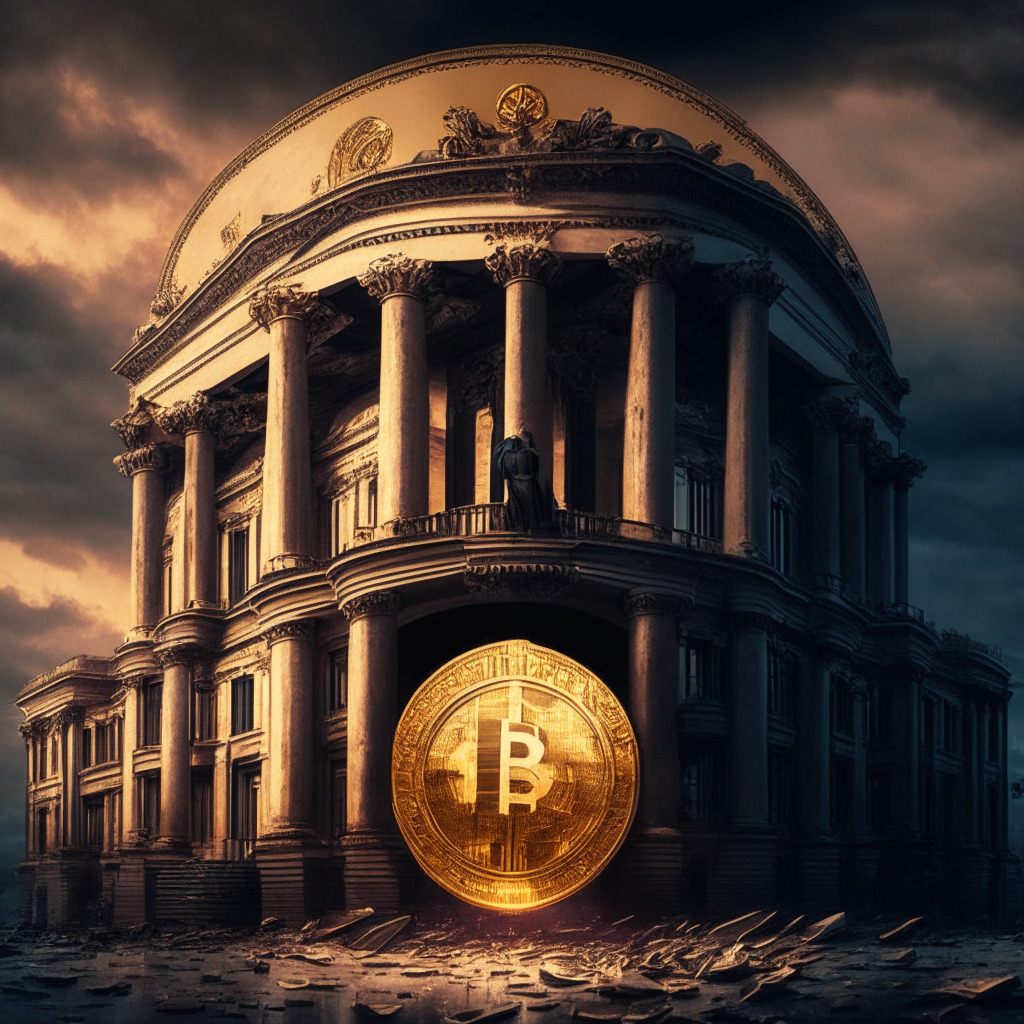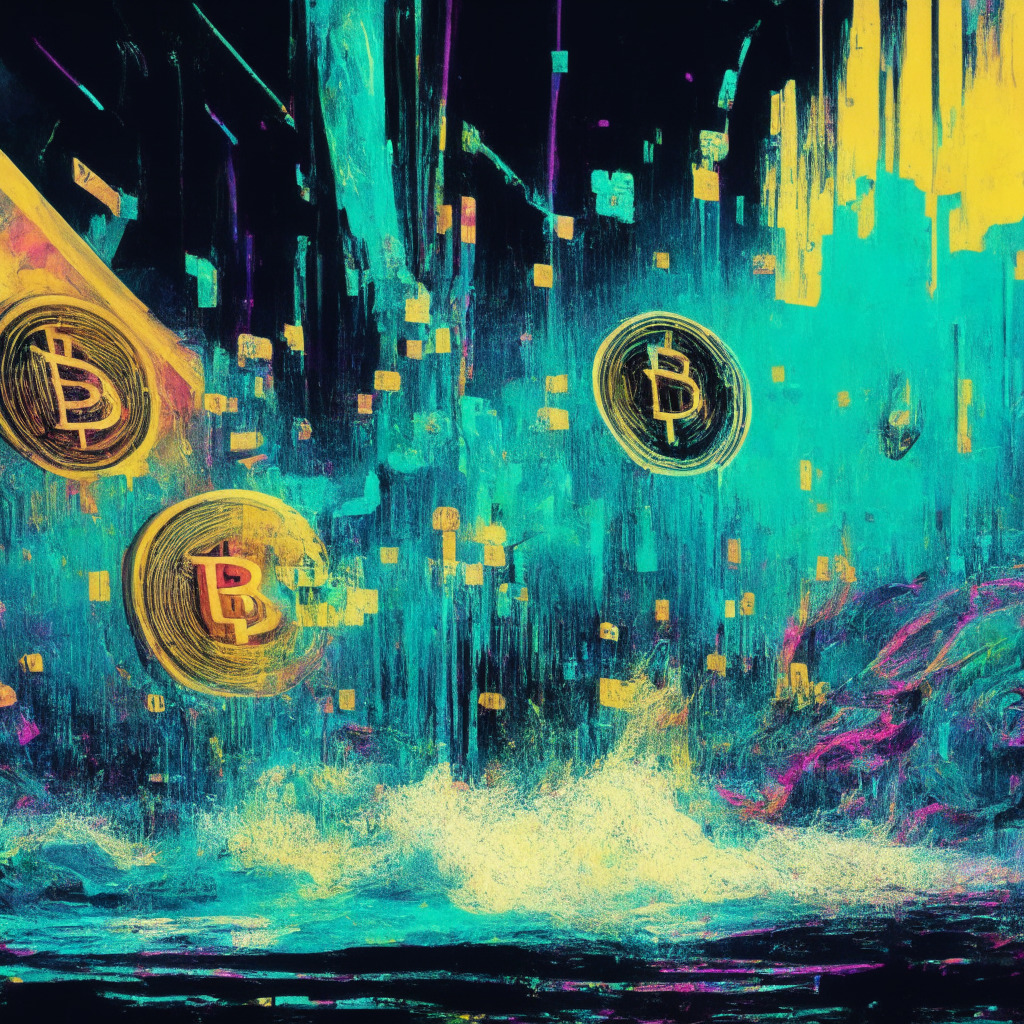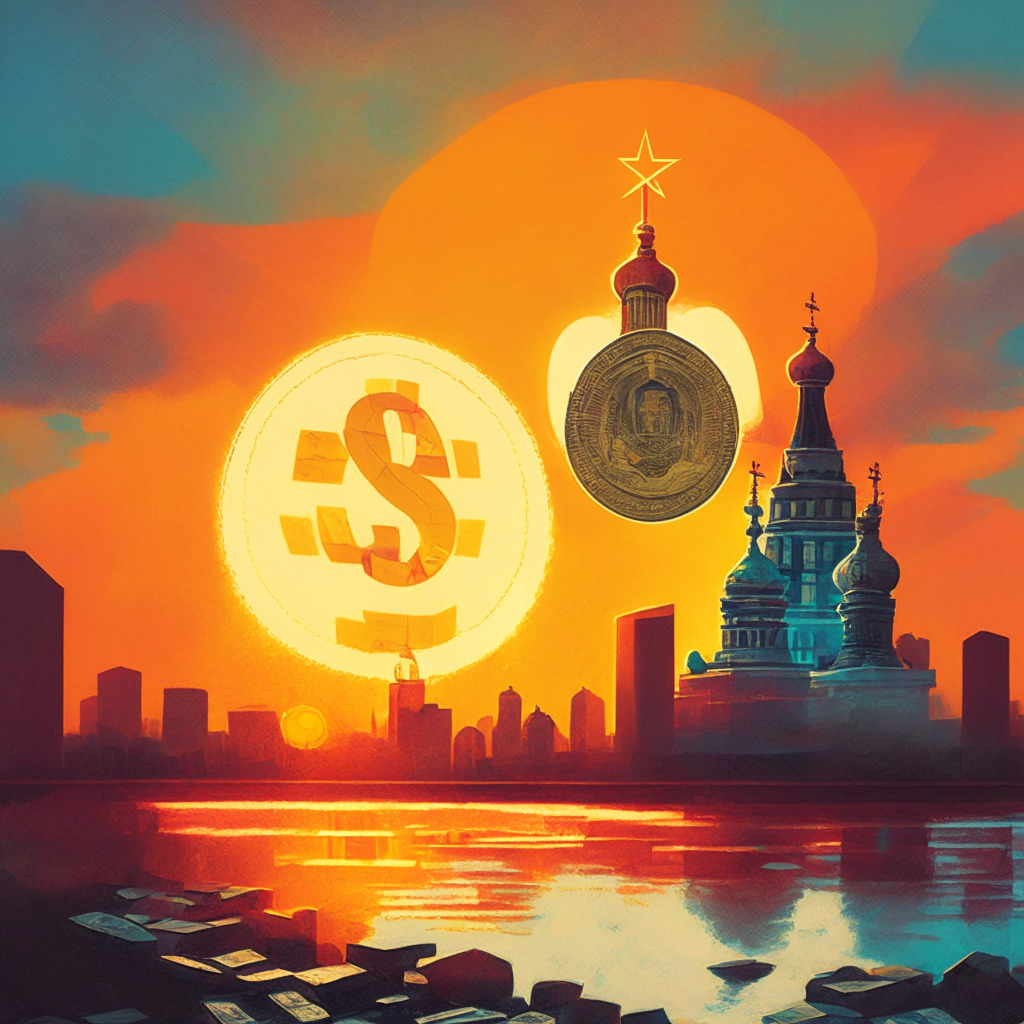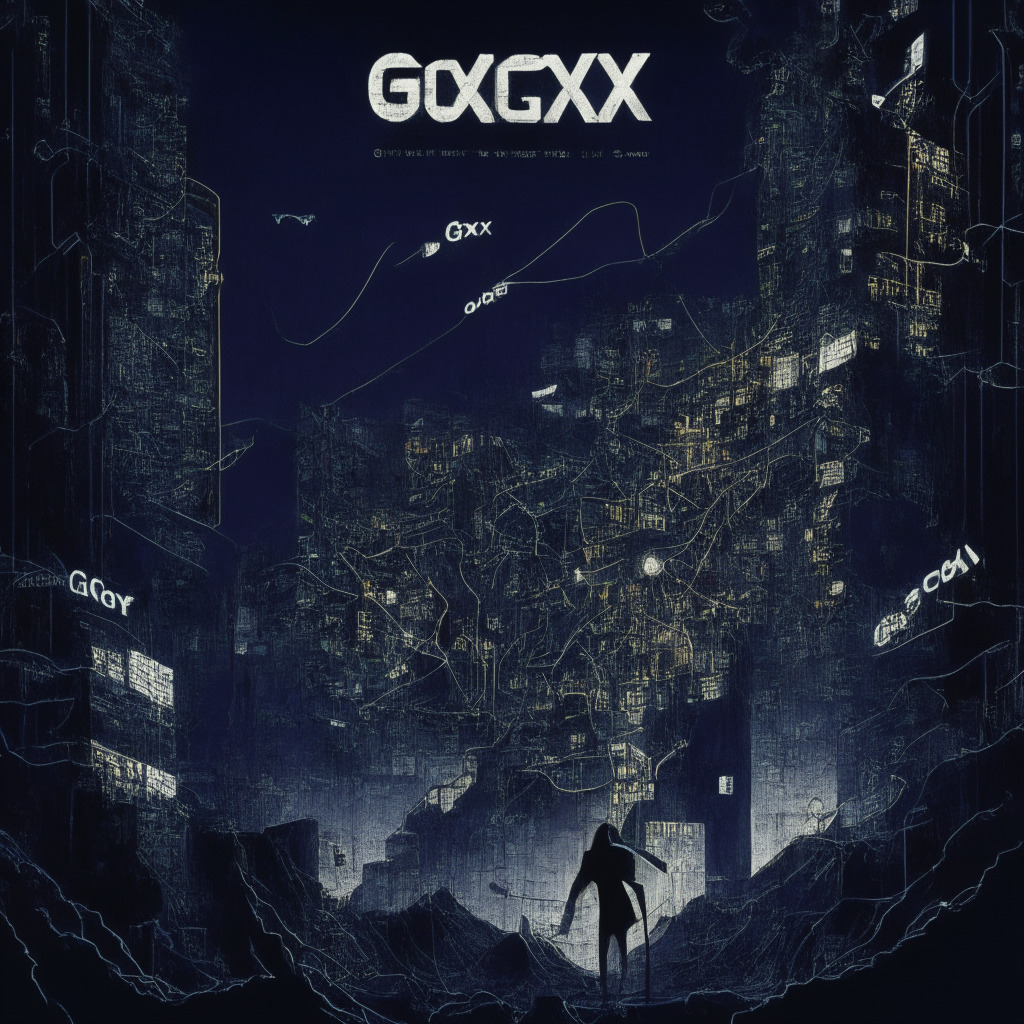“As the criminal trial of former FTX CEO, Sam Bankman-Fried unfolds, discord arises over the testimonies from affected users and investors. With claims of cherry-picking evidence and manipulative tactics, the trial underscores a broader debate about trust in crypto exchanges and the need for prudent regulations to uphold blockchain integrity.”
Search Results for: Russian Central Bank
Diving into Russia’s Digital Ruble Debate: Opportunity or Devastating Risk?
“Russia’s active consideration of a Central Bank Digital Currency (CBDC) is encountering challenges including potential rate increases and withdrawal of major backers. Despite concerns, observers remind that cautious innovation is needed as the future of money moves increasingly towards digitization.”
The Digital Ruble: A Splash in the Global Financial Landscape or Russia’s Field to Plow?
“Russia’s Central Bank Digital Currency (CBDC) – the digital ruble – can play a significant role in curbing black market dollar trading, says former government official, Sergei Kalashnikov. It could minimize the chance of official currency entering the black market, adjust ruble’s value and impact dollar’s growth against it.”
Navigating Digital Ruble Tokens: Russia’s Potential Game-Changer with Associated Risks
The Central Bank of Russia has limited digital ruble wallets to a maximum of 300,000 rubles per month to maintain market stability. However, suggestions have been made to remove this cap for non-Russian investors to facilitate foreign investment in Russia and simplify the purchase of Russian digital financial assets. This decision reflects the growing adoption of digital currencies globally.
Navigating the Labyrinth of Crypto Regulations: A Dual Perspective on Blockchain Progress and Safety
“In the realm of crypto regulations, authorities are tightening grips to mitigate potential risks. The situation sheds light on the increased scrutiny towards prominent crypto figures while emphasizing the importance of regulatory measures. Meanwhile, the emergence of blockchain and digital currencies surfaces concerns about impacting traditional banking systems, creating regulatory complexities.”
Ethereum’s Staking Limit, Argentina’s Bitcoin Surge, and Blockchain Security: Weekly Crypto Roundup
“In an evolving crypto landscape, Ethereum staking providers limited their ownership to 22%, towards decentralization. Bitcoin adoption rises in Argentina contrasting El Salvador’s caution. Binance addresses regulatory environment while security concerns persist despite OpenZeppelin’s Defender 2.0 upgrade. NFTs, CBDCs progress, and stricter crypto regulations emerge.”
Sanction Enforced: Binance Removes Banco de Venezuela from P2P Services
“In a move to enforce international financial sanctions, Binance, the world’s largest crypto exchange, has eliminated a payment method attached to Banco de Venezuela from its P2P trading service. This action reflects the limited room for maneuver that global crypto exchanges have amidst international sanctions and raises questions about the extent to which the promises of cryptocurrencies hold true in a regulated market.”
Digital Ruble Scams Surge in Russia: A Cautionary Tale for the Global CBDC Movement
Scammers capitalizing on Russian citizens’ unfamiliarity with the Central Bank Digital Currency (CBDC) or digital ruble, are sending false emails and directing individuals to phishing sites to steal personal and financial data. The lack of understanding around CBDCs potentially hampers the digital ruble’s mass adoption, highlighting the need for comprehensive education.
Binance Controversy: Balancing Digital Freedom and International Sanctions Compliance
Binance, a popular cryptocurrency exchange, circumvented sanctions on two Russian banks by renaming them for local payment options. Critics argue this move may increase regulatory control over crypto markets. Meanwhile, supporters believe it demonstrates crypto’s independence from traditional financial systems and governmental interference. Binance’s actions have raised questions about crypto exchanges’ responsibility to respect international regulations.
Convulsions in Crypto: Bitcoin Ordinals’ Plummet, OpenSea’s Dutch-stop, and Frend.tech’s Rapid Growth
“Significant fluctuations in the crypto world have been noted, with Bitcoin Ordinals experiencing a drop in trading volume and OpenSea disabling its on-chain royalty enforcement tool. Meanwhile, new decentralized social media platform, Frend.tech, has seen rapid growth, raising queries about its sustainability.”
Market Highs and Lows: Bitcoin’s Latest Slide, the Dipping Drama of BNB, and Australia’s CBDC Stance
Bitcoin experienced a dip under the $26,000 mark, with enthusiasts awaiting the outcome from the Jackson Hole central bankers’ meeting. Meanwhile, the Binance-linked cryptocurrency BNB plunged significantly due to increasing regulatory pressure and investor concerns over a troubled BNB-backed loan.
Navigating the Digital Ruble: A Breakthrough or a Step Towards Financial Surveillance?
“The Central Bank of Russia is testing the digital ruble, a central bank digital currency (CBDC), with potential benefits like offline payment capability discussed. However, journalist Anastasia Tselykh raises concerns over benefits for ordinary citizens, and the implications of easier tracking of citizens’ money.”
CBDCs: Kazakhstan’s Digital Currency Ambitions and the Power Shortages Plaguing Crypto Miners
Former Soviet nations like Kazakhstan are making strides towards embracing Central Bank Digital Currency (CBDC). Echoing Russia and Belarus’ approach, Kazakhstan proposes its CBDC as an ‘add-on’ to existing cash and non-cash payment forms. Despite certain challenges with digital currencies, the nation anticipates full implementation of its CBDC by 2025.
Decoding Global Markets: Fluctuating Ruble, Peso and Unexpected Stagnancy of Bitcoin and Gold
The Russian ruble and Argentina’s peso’s recent turbulence exposes potential global market weaknesses. However, Bitcoin and gold have not seen the anticipated safe-haven investment surge. Possible reasons include the rise in U.S. government bond yields, which may reveal more systemic vulnerabilities.
Riding the Digital Wave: Russia’s Imminent Launch of the Digital Ruble and Its Implications
“Russia prepares to pilot the digital ruble, with the coin possibly acting as a payment method for state benefits. Initial trials will test micropayments, wallet top-up features, and direct debiting. Doubts persist, however, as some banks have inexplicably withdrawn from early pilot stages, casting uncertainty over the future of Russia’s digital ruble.”
Navigating Blockchain: Innovations, Challenges, and the Intriguing Future of Cryptocurrency
“A telling report by Glassnode indicates that long-term crypto holders are showing tenacity, with Coinbase and Binance creating waves in the sector. Coinbase launched its Ethereum layer-2 blockchain, whereas Binance became the first fully licensed crypto exchange in El Salvador.”
Crypto Symphony: Week’s Highs and Lows from The World of Cryptocurrency
“This week, Bitcoin surged significantly and MicroStrategy plans to further boost its BTC coffers. Meanwhile, Tether marked a successful quarter, generating profits over $1 billion. Surprisingly, ETH 2,879 was rescued from a formidable hack thanks to an ethical hacker and Justin Sun. Volatility continues in the cryptocurrency market.”
Unveiling the Digital Ruble: Russia’s Leap into Blockchain Future and Its Implications
“The Bank of Russia advances its central bank digital currency (CBDC), unveiling the logo of its digital ruble. This indicates the undeniable influence of blockchain technology on financial systems. Still, challenges appear since CBDCs have the potential to disrupt traditional banking systems. The introduction of commission fees and slow mass adoption are some stumbling blocks.”
Global Ripple Effect of Crypto Regulations: Innovation versus Protection
The article focuses on recent developments related to crypto legislation, controversy surrounding Worldcoin’s data collection practices, Russia’s progress with a central bank digital currency, and Binance retracting its crypto custody license application in Germany. The central issue revolves around the challenge of balancing innovation and public protection in international blockchain regulation.
Regulating the Digital Ruble: Russia’s Bold Leap into Digitized Sovereign Assets
“The Russian Federal Bailiff Service can now seize digital rubles from citizens and collect fines in digital currency. This forecasts a future where citizens can pay debts directly from their digital wallets linked to Central Bank Digital Currencies (CBDCs), possibly even having their wallets frozen if convicted of crimes or debt negligence. Further, this may lead to cross-national digital currency ecosystems, offering transformative potential yet posing regulatory challenges and questions about personal financial freedom.”
The Digital Ruble: Anticipation and Realism Coexist on Road to Russia’s CBDC Rollout
Russia is set to begin its digital ruble pilot program from August 1, with a full rollout predicted by 2027. The launch will see 13 banks collaborate with select retail outlets and the Central Bank for initial testing. The digital ruble’s wider implementation hangs in the balance of planning, acceptance, and potentially, legislative support.
Rising Digital Ruble: A Boon for Entrepreneurs or a Privacy Nightmare?
“Russia’s financial landscape is shifting with the advent of the Central Bank Digital Currency (CBDC). Touted for its potential savings in transaction fees for businesses and enabling new services and technologies, it’s set to create substantial excitement in the entrepreneurial landscape. However, concerns have been raised over the Central Bank’s increased ability to monitor transactions, provoking privacy issues.”
The Digital Ruble Takes Center Stage: Potential Lifeline or Invasion of Financial Privacy?
“Vladimir Putin has signed the Digital Ruble Bill into law, enabling Russia’s Central Bank to launch its own digital currency. The digital Ruble, a Central Bank Digital Currency (CBDC), can serve as both a tool against international sanctions and a means of monitoring governmental expenditure on social projects. However, there are concerns it could be used to control citizens’ spending.”
Cryptosphere Weekly Roundup: Market Fluctuations, Sec Regulations, and Wallet Safety
“In a tumultuous week for the cryptosphere, signs of a five-quarter drop in crypto investment emerged, yet developments like Neon EVM’s unique offering to build Ethereum applications on Solana, showed promise. Amidst market fluctuations, regulatory pressures and unique crypto innovations, this sector’s dynamics continue to surprise, underscoring the importance of wallet safety in navigating the digital ocean.”
The Digital Ruble’s Accelerated Path: CBDC Advancements amidst International Intrigue
“Russia’s CBDC project, a centralized Digital Ruble, is projected for completion by 2025-2027. The Central Bank aims for the digital ruble to coexist with traditional cash, fostering a flexible transaction ecosystem. Despite potential losses, legislation outlines a framework for the digital ruble ecosystem that ensures high-level cybersecurity and reliability in a balanced, meticulously designed solution.”
Rushing towards Russia’s Digital Ruble: A Leap of Progress or a Hasty Endeavour?
Russia’s Central Bank plans to introduce its digital ruble by 2025, amid keen interest from the country’s financial institutions. This comes as U.S. and EU-led sanctions hinder Moscow’s dollar trade, incentivizing their shift to a digital currency. Despite international skepticism, Russia is exploring cross-border CBDCs and partnerships with “friendly countries.” Amid this eager transition, experts emphasize the importance of maintaining safety and traditional systems.
Legal Complexities and Regulatory Scopes in the Evolving Cryptoasset Space: The StakeHound Example
The blockchain and cryptoasset sector, marked by advancements, legal issues, and regulatory responses, involves complexities like the recent lawsuit between StakeHound and Celsius. Global legislators are working to ensure safe and transparent crypto markets, while controversies rise with the introduction of Central Bank Digital Currencies (CBDCs).
Russia’s Digital Ruble: A Revolution in Finance or A Step Towards Financial Monopoly?
“Russia’s parliament is moving towards legislation for the ‘digital ruble’, their prospective Central Bank Digital Currency (CBDC). The proposed law hands power to the Bank of Russia to manage the CBDC infrastructure, issue currency, and guarantee safety. This move opens opportunities for new payment avenues and cross-border solutions, despite an initial skepticism and ban on digital assets.”
Crypto Taxation in Russia: A Paradox Amidst Legal Ambiguity and Regulatory Deadlocks
Russia’s Federal Tax Service (FTS) recently affirmed that citizens can pay taxes on crypto earnings in spite of the ambiguous legal status of cryptocurrency. Two tax methodologies are proposed: personal income tax disclosures or the condensed taxation system. This starkly contrasts with the Central Bank’s anti-crypto position, hinting at a deeper inconsistency in governmental approaches to digital financial technology in Russia.
Russia’s Crypto Conundrum: Navigating Between Bans, Regulations, and a Lucrative Mining Industry
The Russian finance ministry proposes a ban on cryptocurrency circulation, exempting only stablecoin issuers and crypto miners. This comes alongside efforts to legitimise the advanced, yet untaxed and unrecognised, crypto mining sector. The move faces resistance, due to potential confusion caused by unclear definitions and concerns about enforcement among crypto owners.
Mt. Gox Hack Fallout: Striking Balance Between Crypto Benefits and Security Risks
The US Department of Justice charges two Russian nationals for conspiracy to commit money laundering in the Mt. Gox hack, raising questions on cryptocurrency security and the role of exchanges in money laundering and cybercrime. Striking a balance between embracing cryptocurrencies’ benefits and implementing regulations to curb malpractices becomes crucial.
Russia’s Push to Confiscate & Liquidate Criminals’ Crypto: Challenges and Potential Impact
The Russian Prosecutor-General’s office is working on a proposal to confiscate and liquidate criminals’ cryptocurrency holdings. Challenges like converting tokens to fiat currency and impact on innocent crypto holders must be considered for a balanced regulatory approach.
